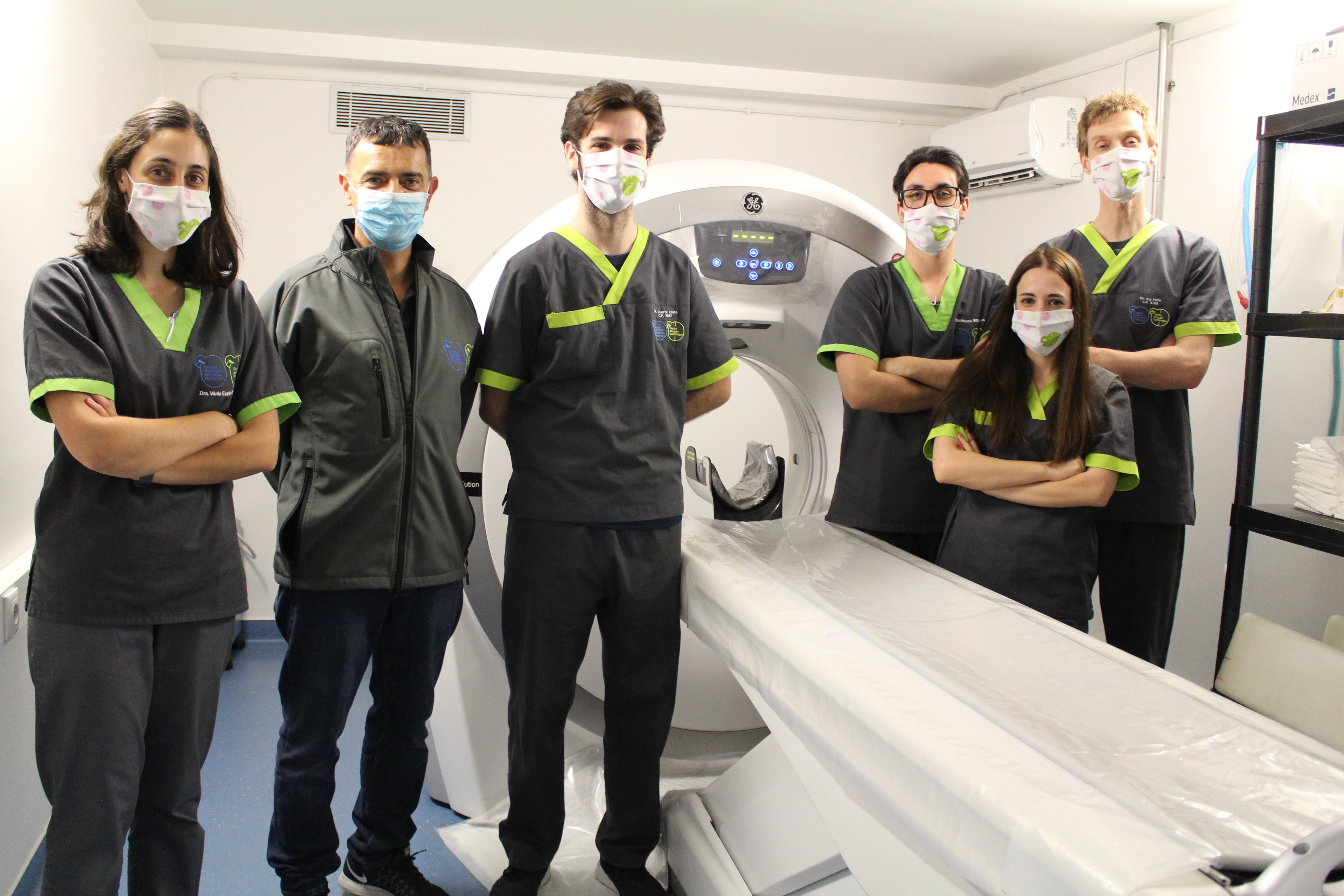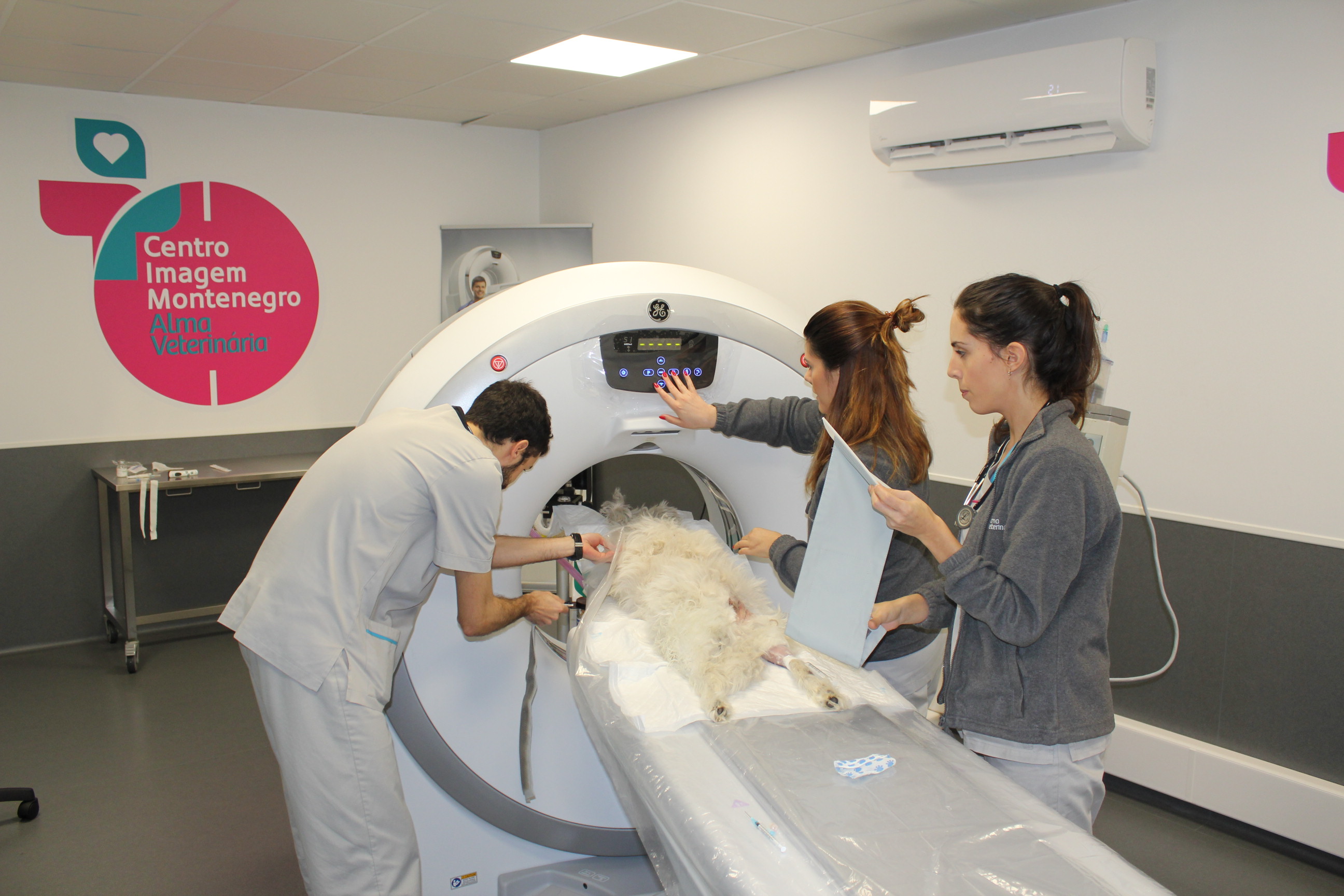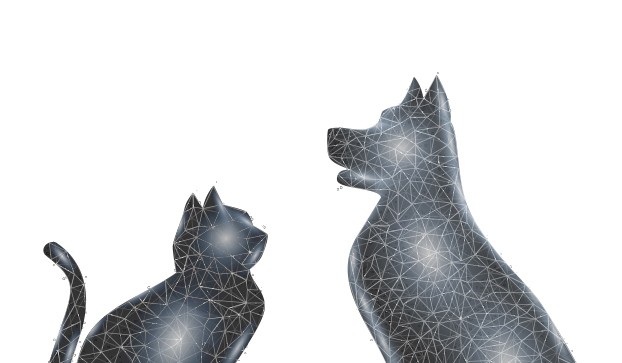Which exam should my animal perform?
The best way to know which exam your animal should perform is by talking with your Veterinarian. He might contact us directly to schedule it or he might advise you on which exam to perform and which center to enter in contact with.
Is there any preparation needed?
Before the procedure, your best friends need to be fasting for at least 8 hours and cannot ingest water for at least 4 hours prior to the schedule hour of the procedure. This needs to be done, in order to do this exam in animals,they need to be under general anaesthesia
Before the exam the animals need to have a basic pre-anaesthesia bloodwork panel done, this is also because of the need to put them under general anaesthesia to perform the exam, so we need to know how the general body functions are, in order to know if he is capable of metabolizing the anaesthesia drugs.
Does he really need to do the anaesthesia?
Yes. The anaesthesia is quite important, it allows for the animal to be calm and impared of movement during the exam, because if they do move, it will affect the images in a negative way, and we might not be able to do a diagnosis because of this, rendering the exam useless.
Is the anaesthesia dangerous?
Any procedure that requires anaesthesia is dangerous, the main danger is an anaphylactic reaction to one of the drugs admnistered for it, being unpredictable if your animal is going to have one of this reactions. If you are already aware of a previous reaction to any drugs you should say so to the veterinarian, it is vital. Although there are this and other situations that can enchance the anaesthesia danger, most anaesthesias have a very low mortality rate.
What about the Radiation?
Before we talk about radiation we have to understand that there are several types of radiation, some have the potential to be harmful others do not. In the case of the CT scan, the radiation used is radiation X, which is potentialy harmful, this does not mean that animal or humans that are submitted to a CT scan will have problems because they have done so, in fact, nowadays the amount of radiation produced during the exam is far inferior to the doses that were used years ago, even though they are superior to the conventional X ray.
On the other hand, the MRI uses a type of radiation that is not harmful, at least until today, the current studies have shown no link to a disease caused by someone being submitted to MRI exams.
Animals that have to do any of the exams have a low risk of developing any pathology related to it.
Contrast media, yes or no?
Contrast media is used in certain studies, such as vascular or urinary studies, some studies have an absolute necessity to use contrast media in order to get a diagnosis
Can my animal have an adverse reaction to the contrast media?
Yes. There is the possibility of him having a allergic reaction to the contrast media, even though they are rare.
My animal is going to do an exam, does he have to stay interned in the facilitys?
No. In order to the exam the animal doesn’t have to spend overnight at our facility, he has to stay until he recovers from the effects of the anaesthesia.
How do I schedule an exam?
Scheduling an exam can be done over the phone ou through our e-mail, through the request system in our website, because they are scheduled according to the convenience of the owner or the next possible appointment. Your Veterinarian can also contact us in order to schedule it. In case of emergency exams, the exam can be schedule at any hour outside of the normal schedule with an extra fee.
When do I get the results?
Results are verbally communicated with the owner and the respective Veterinarian. The report is done and sent in 24 hours except in extraordinary causes.
How long does the exam take?
CT scans take about 45 minutes, counting the animal recovering from the anaesthesia and MRI have an average of 1 hour and 15 minutes, depending on the amount of areas in study.







